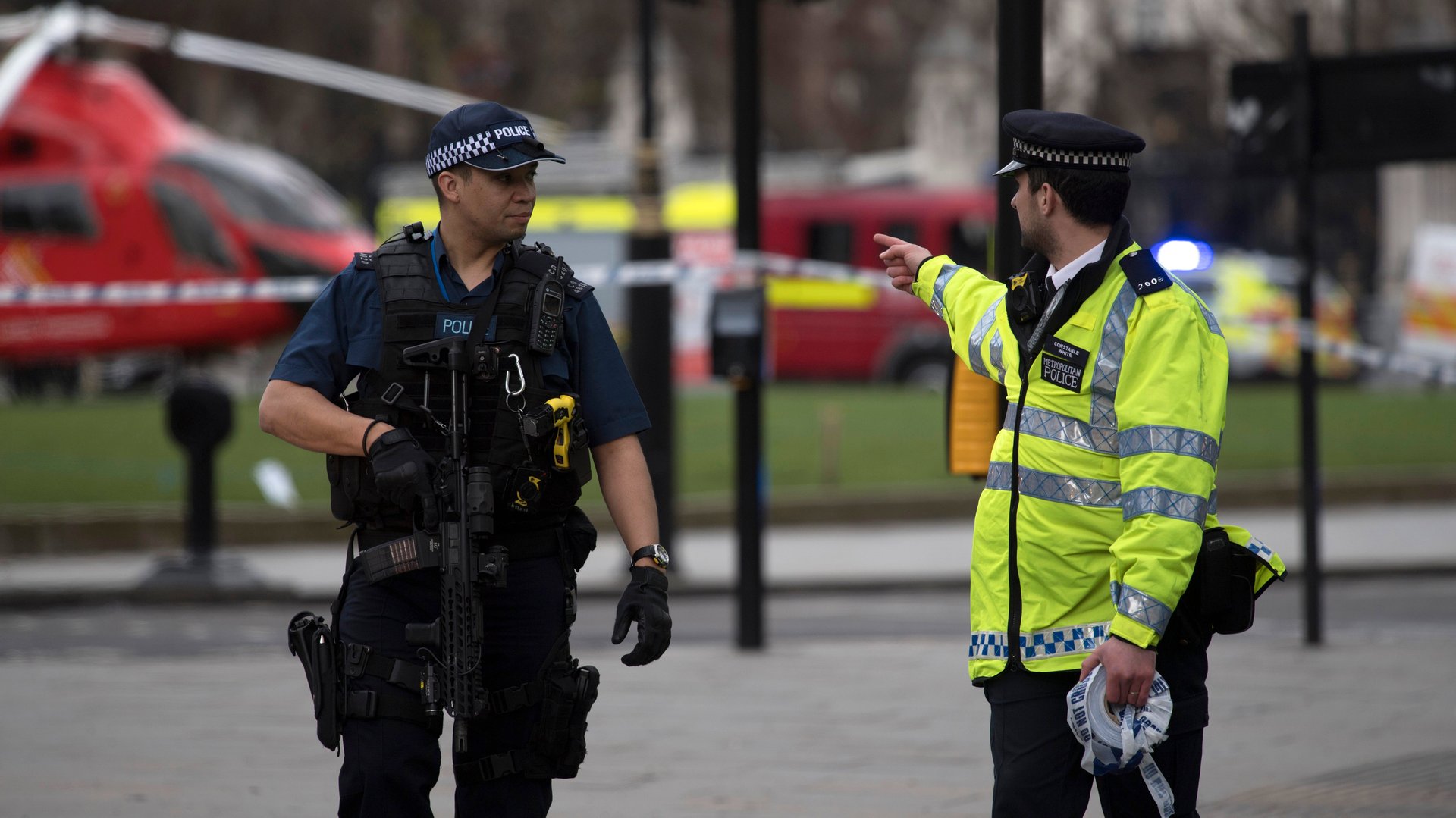Even with all these terror attacks, it’s still very rare to see police with guns in England
During the latest terror attack in central London yesterday—which killed seven people and injured more than 40—an elite unit of the Metropolitan Police was quickly called to the scene.


During the latest terror attack in central London yesterday—which killed seven people and injured more than 40—an elite unit of the Metropolitan Police was quickly called to the scene.
To Londoners, the extra detail about cops carrying guns underlined the severity of the incident; unlike many other countries, most police officers in England aren’t routinely armed.
For a rich country with more than 60 million people, the UK’s mostly firearm-free police is unique. The BBC explains that this goes back to the 19th century, when police without firearms wore blue uniforms to differentiate themselves from armed members of the infantry, who wore red uniforms. That idea of community policing without guns stuck. When firearms were given to the police in the early 20th century, only trained officers who could prove they needed a gun got one.
Today, fewer than one in 20 police officers in England and Wales carries a gun. (The police carry weapons in Northern Ireland.) These two territories employ 124,000 police officers, including only 5,600 authorized firearms officers. Armed officers very rarely discharge their weapons—there are generally only a handful of incidents per year.
And the few times the police have fired guns have not been without controversy. In 2005, following the deadly July 7 suicide bombings on London’s transport network, police shot and killed Jean Charles de Menezes, a Brazilian national that police mistakenly thought to have been involved in another subsequent attempted attack on the Tube.
The legal challenges against the police went all the way to the European Court of Human Rights, which decided to uphold a lower court’s order to not charge the police officers who killed Menezes. Another incident in 2011 led to police controversially killing a man named Mark Duggan, who they said was in possession of a gun. The killing was deemed lawful—but only after three years of legal cases and an inquest.
There have been three terrorist attacks in the UK in the last three months. Since the first attack, the terrorism threat level has remained at “severe” (and was raised to “critical” after the Manchester attack in May). This has meant that armed police have been deployed on the streets in larger numbers than normal, which has allowed the police to respond quickly to terror incidents.
Yesterday, for instance, police confronted and shot the suspects within eight minutes of the first emergency call.
According to the Guardian, a survey of British police officers earlier this year found that a quarter of them said that they should routinely carry guns.